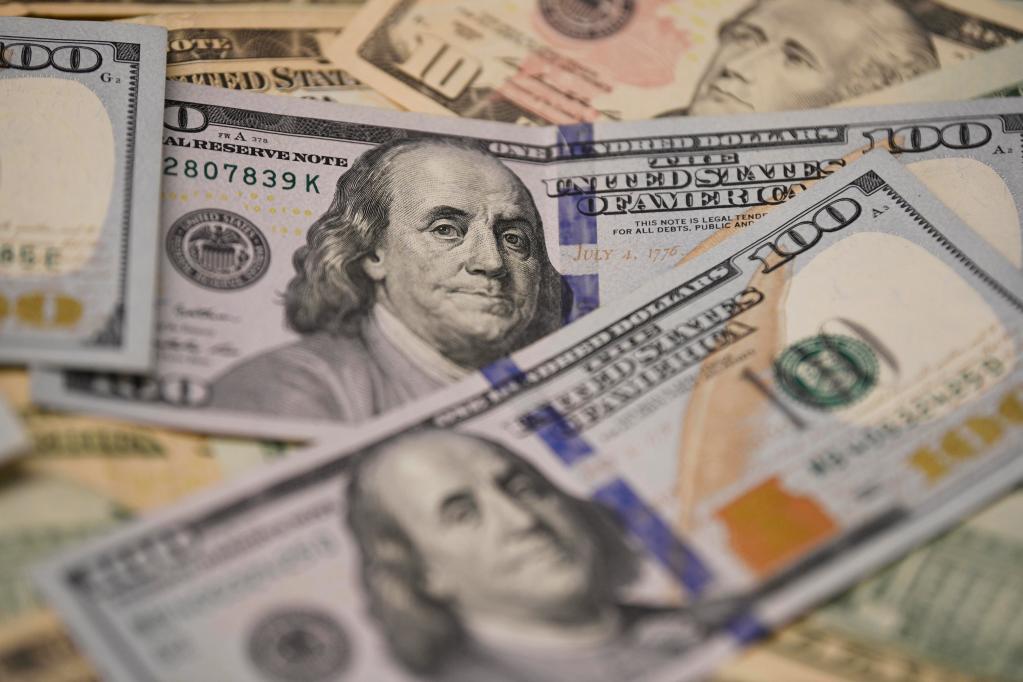The first step in stock trading is to open a stock account. Canada is thoroughly angered. In response to the tariff threats from the U.S. President-elect Trump, Canadian Prime Minister Trudeau announced on December 9th, during an event held locally, that if Trump truly imposes a 25% tariff on goods imported from Canada, Canada will retaliate with tariffs as well. This statement implies that Trudeau’s meeting with Trump at the end of last month ended in a breakdown.
According to the latest data from the U.S. Trade Representative, the U.S. and Canada have one of the world’s most closely-knit trade relationships, with annual two-way trade amounting to nearly one trillion dollars. The Oxford Economics Institute calculated that if the U.S. imposes a 25% tariff and Canada retaliates with a counter-tariff, it could lead to a recession in Canada’s economy. Notably, Trump’s wielding of the ‘tariff club’ has already sparked tension within the United States. Due to concerns about rising prices, U.S. consumers are stockpiling goods before Trump takes office, and U.S. tech companies are also hoarding electronic components to build up sufficient inventory before Trump returns to the White House. On December 9th, Canadian Prime Minister Trudeau stated that if the U.S. President-elect Trump truly follows through on his previous words and imposes a 25% tariff on goods imported from Canada, Canada will retaliate with tariffs. Trudeau announced during an event, ‘We will, of course, respond to unfair tariffs in various ways, just as we did eight years ago. We are still looking for the right way to respond.’ Trudeau believes that Canada’s retaliatory tariffs against the U.S. were successful after Trump imposed tariffs on Canadian steel and aluminum in 2018. Trudeau stated that during Trump’s first term, Canada had imposed retaliatory tariffs on carefully targeted politically sensitive goods, ‘This is how we fought back in a way that Americans could feel. ‘ Trudeau also pointed out that there are signs that Americans have ‘begun to realize that imposing tariffs on all products from Canada will make life more expensive for Americans.’ In 2018, the Trump administration imposed tariffs on imported steel and aluminum, including those from Canada. The Trudeau government retaliated fiercely at the time, imposing targeted tariffs on certain U.S.-made goods to put pressure on congressmen from major U. S. states. These included bourbon whiskey from Kentucky, motorcycles produced by the Harley-Davidson factory in Wisconsin, and ketchup from Pennsylvania. Trudeau stated that these tariffs were lifted in 2019 after an agreement was reached with the Trump administration at that time.The political repercussions of tariff retaliation have affected the president’s party and colleagues… We can strike back in a way that Americans can tangibly feel. Did talks collapse? At the end of last month, Trump announced that one of his first executive orders would be to impose a 25% tariff on Canada and Mexico if they do not curb illegal immigration and drugs. Following this statement, Trudeau urgently visited the Mar-a-Lago estate in Florida and held talks with Trump.
It is reported that during the dinner, Trudeau and Trump discussed trade and border issues. Attendees at the dinner revealed that Trudeau complained about the impact of tariffs on Canada’s economy. Trump retorted, “So, your country can’t survive without extracting 100 billion dollars from the United States?” Trump also jokingly said, “If the Canadian leader doesn’t like it, Canada could become the 51st state of the United States. ” In a recently aired interview, Trump reiterated, “I strongly believe in tariffs; we are subsidizing Mexico, we are subsidizing Canada, we are subsidizing many countries around the world. What I want is a fair, swift, but fair competitive environment.” According to the latest data from the U.S. Trade Representative’s office, the United States and Canada have one of the world’s most closely knit trade relationships, with annual two-way trade nearing one trillion dollars. Nearly three-quarters of Canada’s exports are directed towards the United States. Many economists have warned that a 25% tariff on Canadian goods by the United States could trigger a Canadian economic recession. The Oxford Economics Institute has calculated that a 25% tariff, coupled with retaliatory taxes from Canada, would lead to a recession. Based on their modeling, the institute estimates that from early 2025 to mid-2026, tariffs would lead to a 2. 9% decrease in Canada’s non-energy exports and a 7% decrease in business investment during the same period. Panic buying has already sparked tension within the United States due to Trump’s “tariff stick.” Fearful of rising prices, U.S. consumers are stockpiling goods before Trump takes office. According to a recent survey by the U.S. credit card portal CreditCards.com, one-third of respondents plan to spend more on shopping during the next holiday season, primarily motivated by concerns that tariffs will increase after Trump takes office. Other reasons include concerns about potential supply chain disruptions, “social instability,” and economic recession. Survey results also show that Americans are buying up daily necessities, with 34% of Americans stockpiling essential goods.Tissue paper tops the shopping list, with 77% of respondents indicating they would stock up on it. Following closely are non-perishable food items at 76%, medical supplies at 58%, and over-the-counter medications at 54%. Additionally, the survey results reveal that nearly one-third of respondents wish to borrow more money for shopping. In a recent program, when asked if he could guarantee that American families would not pay more due to his tariff policies, Trump responded, “I can’t guarantee anything, I can’t guarantee tomorrow.
” It is noteworthy that U.S. businesses reliant on imports are also stockpiling key goods to prepare as much as possible before Trump imposes tariffs. Citing a report from the Nikkei, the Observer Network reported that U.S. tech companies such as Microsoft, HP, and Dell are hoarding electronic components made in China to build sufficient inventory before Trump officially returns to the White House in January next year. Concurrently, CEOs of major U.S. corporations warn that tariffs will translate into price increases. The U.S. dollar store giant, Dollar Tree, recently stated that tariffs might force this deep discount chain to raise prices and cease selling certain products altogether. Experience the new insights from investment research assistants immediately. (Source: Securities China)


